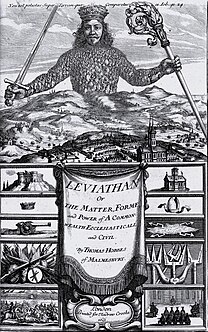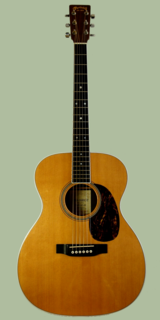
Bodybuilding is the use of progressive resistance exercise to control and develop one's musculature for aesthetic purposes. An individual who engages in this activity is referred to as a bodybuilder. In professional bodybuilding, bodybuilders appear in lineups and perform specified poses for a panel of judges who rank the competitors based on criteria such as symmetry, muscularity, and conditioning. Bodybuilders prepare for competitions through the elimination of nonessential body fat, enhanced at the last stage by a combination of intentional dehydration and carbohydrate loading, to achieve maximum muscular definition and vascularity, as well as tanning to accentuate the contrast of the skin under the spotlights. Bodybuilders may use anabolic steroids and other performance-enhancing drugs to build muscles.

The body mass index (BMI) or Quetelet index is a value derived from the mass (weight) and height of an individual. The BMI is defined as the body mass divided by the square of the body height, and is universally expressed in units of kg/m2, resulting from mass in kilograms and height in metres.

The Eucharist is a Christian rite that is considered a sacrament in most churches, and as an ordinance in others. According to the New Testament, the rite was instituted by Jesus Christ during the Last Supper; giving his disciples bread and wine during the Passover meal, Jesus commanded his followers to "do this in memory of me" while referring to the bread as "my body" and the cup of wine as "the new covenant in my blood". Through the Eucharistic celebration Christians remember both Christ's sacrifice of himself on the cross and his commission of the apostles at the Last Supper.

An electric guitar is a guitar that uses one or more pickups to convert the vibration of its strings into electrical signals. The vibration occurs when a guitar player strums, plucks, fingerpicks, slaps or taps the strings. The pickup generally uses electromagnetic induction to create this signal, which being relatively weak is fed into a guitar amplifier before being sent to the speaker(s), which converts it into audible sound.

Freemasonry or Masonry consists of fraternal organisations that trace their origins to the local fraternities of stonemasons, which from the end of the fourteenth century regulated the qualifications of stonemasons and their interaction with authorities and clients. The degrees of Freemasonry retain the three grades of medieval craft guilds, those of Apprentice, Journeyman or fellow, and Master Mason. The candidate of these three degrees is progressively taught the meanings of the symbols of Freemasonry, and entrusted with grips, signs and words to signify to other members that he has been so initiated. The initiations are part allegorical morality play and part lecture. The three degrees are offered by Craft Freemasonry. Members of these organisations are known as Freemasons or Masons. There are additional degrees, which vary with locality and jurisdiction, and are usually administered by their own bodies.

The guitar is a fretted musical instrument that usually has six strings. It is typically played with both hands by strumming or plucking the strings with either a guitar pick or the finger(s)/fingernails of one hand, while simultaneously fretting with the fingers of the other hand. The sound of the vibrating strings is projected either acoustically, by means of the hollow chamber of the guitar, or through an electrical amplifier and a speaker.

The resurrection of Jesus or resurrection of Christ is a central doctrine in Christianity. According to the New Testament, after being crucified by the Roman authorities and buried by Joseph of Arimathea, Jesus was raised from the dead by God and appeared to witnesses before ascending into heaven to sit at the right hand of God.

Resurrection is the concept of coming back to life after death. In a number of ancient religions, a dying-and-rising god is a deity which dies and resurrects.
A sports governing body is a sports organization that has a regulatory or sanctioning function. Sports governing bodies come in various forms, and have a variety of regulatory functions. Examples of this can include disciplinary action for rule infractions and deciding on rule changes in the sport that they govern. Governing bodies have different scopes. They may cover a range of sport at an International level, such as the International Olympic Committee and the International Paralympic Committee, or only a single sport at a national level, such as the Rugby Football League. National bodies may or may not be affiliated to international bodies for the same sport. The first international federations were formed at the end of the 19th century.

John Wayne Gacy was an American serial killer and rapist. He sexually assaulted, tortured and murdered at least 33 teenage boys and young men between 1972 and 1978 in Cook County, Illinois.

An out-of-body experience is an experience in which a person seems to perceive the world from a location outside their physical body. An OBE is a form of autoscopy, although the term autoscopy more commonly refers to the pathological condition of seeing a second self, or doppelgänger.

Astral projection is a term used in esotericism to describe a willful out-of-body experience (OBE) that assumes the existence of a soul or consciousness called an "astral body" that is separate from the physical body and capable of travelling outside it throughout the universe.
Body language is a type of nonverbal communication in which physical behaviors, as opposed to words, are used to express or convey information. Such behavior includes facial expressions, body posture, gestures, eye movement, touch and the use of space. Body language exists in both animals and humans, but this article focuses on interpretations of human body language. It is also known as kinesics.
A professional association seeks to further a particular profession, the interests of individuals engaged in that profession and the public interest. In the United States, such an association is typically a nonprofit organization for tax purposes.

Elizabeth Short, known posthumously as the "Black Dahlia," was an American woman who was found murdered in the Leimert Park neighborhood of Los Angeles, California. Her case became highly publicized due to the graphic nature of the crime, which included her corpse having been mutilated and bisected at the waist.

A polity is any kind of political entity. It is a group of people who are collectively united by a self-reflected cohesive force such as identity, who have a capacity to mobilize resources, and are organized by some form of institutionalized hierarchy.

Chartered accountants were the first accountants to form a professional accounting body, initially established in Scotland in 1854. The Edinburgh Society of Accountants (1854), the Glasgow Institute of Accountants and Actuaries (1854) and the Aberdeen Society of Accountants (1867) were each granted a royal charter almost from their inception. The title is an internationally recognised professional designation; the certified public accountant designation is generally equivalent to it.

An acoustic guitar is a guitar that produces sound acoustically by transmitting the vibration of the strings to the air—as opposed to relying on electronic amplification (see electric guitar). The sound waves from the strings of an acoustic guitar resonate through the guitar's body, creating sound. This typically involves the use of a sound board and a sound box to strengthen the vibrations of the strings. In standard tuning the guitar's six strings are tuned (low to high) E2 A2 D3 G3 B3 E4.
A cadaver is a dead human body that is used by medical students, physicians and other scientists to study anatomy, identify disease sites, determine causes of death, and provide tissue to repair a defect in a living human being. Students in medical school study and dissect cadavers as a part of their education. Others who study cadavers include archaeologists and artists.

















